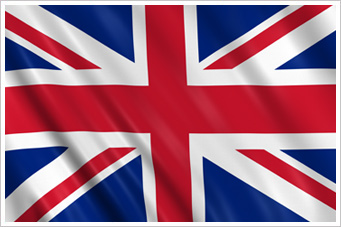Dual Citizenship United Kingdom
British nationality law is complex because of the UK's history as an imperial power. There are 6 classes of British national, and each class is further explained below.
Generally, British citizenship is available through these methods:
- birth in the UK to a parent who is a British citizen or who lives in the UK;
- birth outside of the UK to a British citizen parent who is not a citizen by descent (thus, the parent has to be a citizen by birth, adoption, etc.);
- naturalization;
- registration;
- adoption.
Citizens not by descent are the only citizens that can pass on citizenship automatically to their children born outside the UK. Citizens by descent can also pass on citizenship to their children, but these children must meet certain residence requirements in the UK and be registered before age 18.
Since the UK is a part of the European Union, a British citizen can travel and reside freely in any of the member states that are a part of the EU.
Since 1948, the UK has permitted dual citizenship.
Classes of British Nationality
There are 6 classes of British nationality:
1) British citizens - connection with the UK, Channel Islands and Isle of Man. Former citizens of the United Kingdom and Colonies who possessed the right of abode under the Immigration Act 1971 through a connection with the UK, Channel Islands and Isle of Man generally became citizens on January 1, 1983. British citizens are the only class of British nationality that permits a right of abode in the UK.
2) British Overseas Territories Citizens (BOTC), formerly British Dependent Territories Citizenship (BDTC) - connection with an existing overseas territory. Nearly all BOTCs are also British citizens as a result of the British Overseas Territories Act 2002.
3) British Overseas Citizens (BOC) - former Citizens of the United Kingdom and Colonies who did not qualify for either British citizenship or British Dependent Territories citizenship. BOCs are derived from former colonies such as Malaysia and Kenya, and are fairly uncommon today.
4) British Subjects - British subjects who were not Citizens of the United Kingdom and Colonies or citizens of any other Commonwealth country. Most of these derived their status from British India or the Republic of Ireland as they existed before 1949.
5) British Nationals (Overseas) (BNO) - created by the Hong Kong Act 1985 and the British Nationality (Hong Kong) Order 1986. BNOs are former Hong Kong BDTCs who applied for BNO status before Hong Kong was given to China. Hong Kong BDTCs who did not apply to become BNOs and who did not gain Chinese nationality became BOCs if they were stateless.
6) British Protected Persons (BPP) - derived from parts of the British Empire that were protectorates or protected states with nominally independent rulers under the protection of the British Crown, but not officially part of the Crown's dominions. BPPs are not citizens and were not traditionally considered nationals, but are not aliens.
SIGN UP FOR A FREE CONSULTATION




